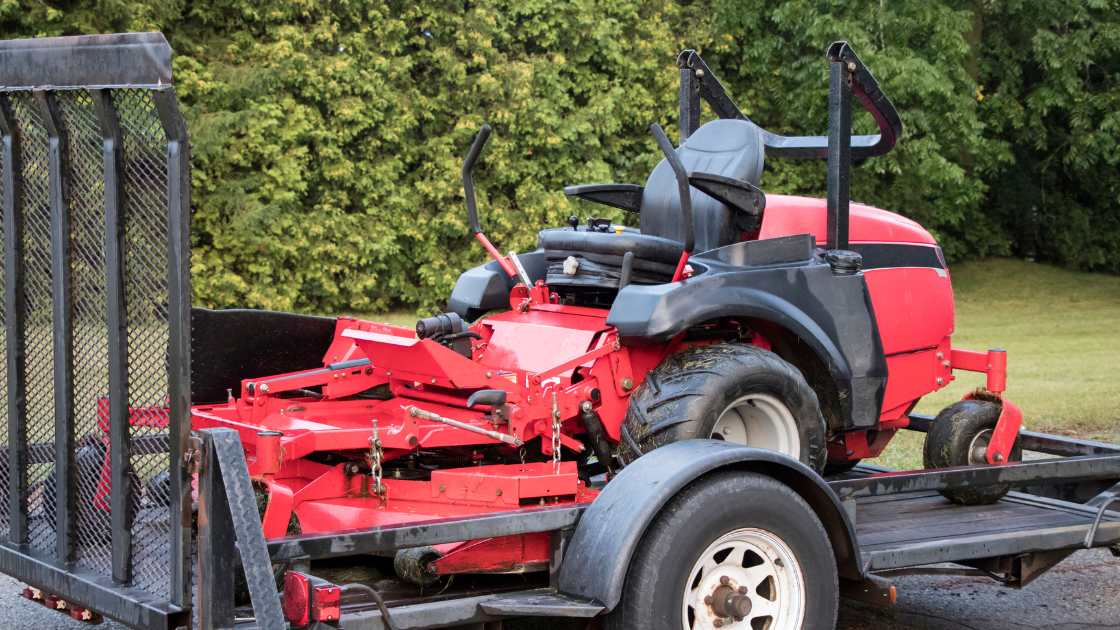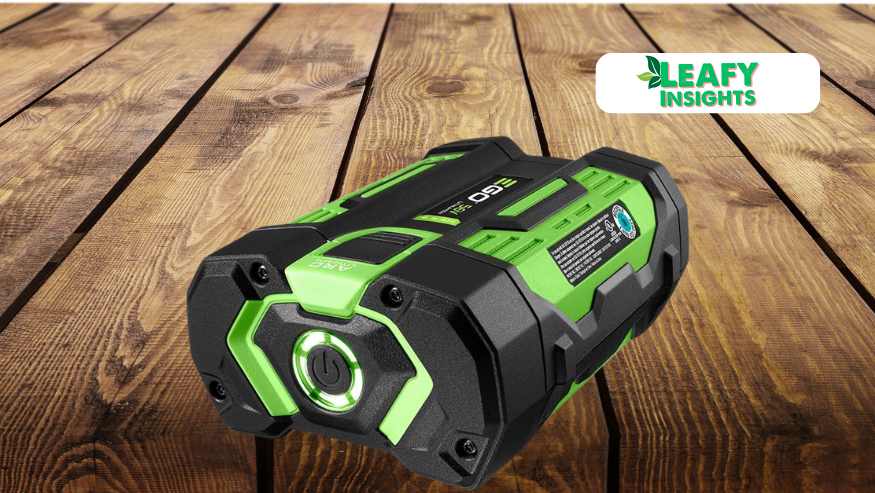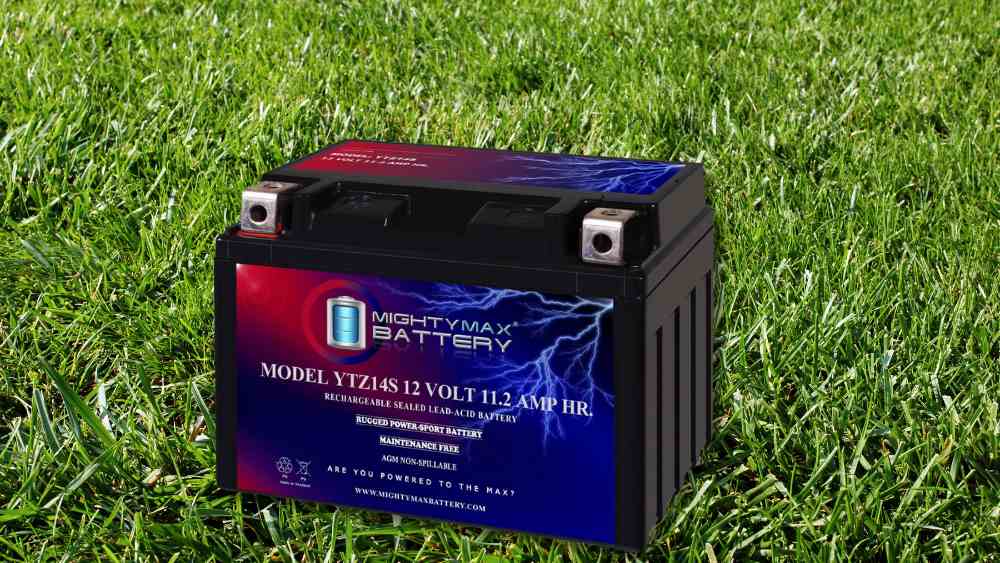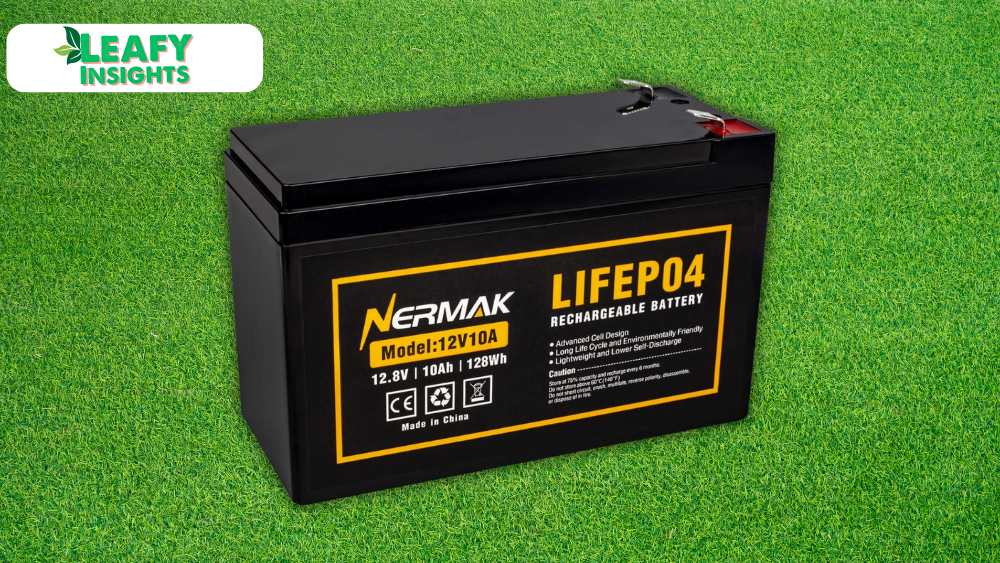Ever considered investing in a zero-turn mower? Weight isn’t just a trivial specification; it’s a crucial factor that can significantly impact your mowing experience and the health of your lawn. Let’s delve into why the weight of zero-turn mowers matters more than you might realize!
Zero-turn mowers have revolutionized lawn care with their unparalleled maneuverability and speed. Unlike traditional riding mowers, which have a steering wheel and turn radius, zero-turn mowers pivot on their rear wheels, allowing for precise turns and efficient navigation around obstacles. This agility means you can trim around trees, flower beds, and other obstacles with ease, saving you time and effort.
But speed is another key advantage of zero-turn mowers. With their ability to turn on a dime, these machines can zip around your yard at impressive speeds, getting the job done in record time. Whether you’re a homeowner with a sprawling lawn or a professional landscaper tackling multiple properties, the speed of a zero-turn mower can make a noticeable difference in your productivity.
- Engine Size: One of the primary contributors to a zero-turn mower’s weight is its engine size. Larger engines typically weigh more, but they also deliver greater power and performance. If you have a large lawn or frequently encounter thick grass or challenging terrain, opting for a mower with a bigger engine might be worth the extra weight.
- Frame Construction: The construction of the mower’s frame also affects its weight. Mowers with steel frames tend to be heavier but offer durability and stability, making them suitable for rough terrain and heavy use. On the other hand, mowers with aluminum or composite frames are lighter but may not withstand as much wear and tear over time.
- Deck Material: The material used for the mower’s cutting deck can significantly impact its weight. Steel decks are robust and durable, but they add more weight to the mower. Alternatively, decks made from lightweight materials like aluminum or composite can reduce overall weight without sacrificing cutting performance.
- Additional Features: Extra features such as suspension systems, bagging attachments, and roll-over protection structures (ROPS) can add weight to the mower. While these features enhance comfort, safety, and functionality, they also contribute to the overall mass of the machine.
- Fuel Capacity: The size of the fuel tank affects the mower’s weight, especially when it’s fully loaded. Larger tanks enable longer mowing sessions without refueling but add extra weight to the mower. Consider your mowing needs and balance fuel capacity with maneuverability when choosing a mower.
Understanding these factors can help you make an informed decision when selecting a zero-turn mower that meets your needs and preferences. By considering the weight alongside other features and specifications, you can ensure optimal performance and longevity for both your mower and your lawn.
while weight may not be the first thing that comes to mind when shopping for a zero-turn mower, it’s a critical factor that shouldn’t be overlooked. By understanding the various factors that contribute to a mower’s weight and how they impact performance, you can make a confident choice that enhances your mowing experience and keeps your lawn looking its best. So, whether you’re a weekend warrior or a professional landscaper, remember that when it comes to zero-turn mowers, every pound counts!
The Weight of Zero-Turn Mowers: It’s All Relative!
Weight Range:
Zero-turn mowers come in a staggering array of sizes, shapes, and configurations, and their weight reflects this diversity. From compact residential models to heavy-duty commercial machines, the weight of zero-turn mowers can vary significantly, ranging from a few hundred pounds to several thousand pounds.
Before delving into the specifics of what influences a zero-turn mower’s weight, let’s briefly touch on the key factors that contribute to this variance:
- Size: The size of the mower, including its cutting deck width and overall dimensions, plays a significant role in determining its weight. Larger mowers with wider cutting decks tend to weigh more due to the additional materials and structural support required.
- Engine Type and Size: Zero-turn mowers are powered by either gas or electric engines, with gas engines being the most common. The size and type of engine can impact the mower’s weight, with larger engines generally adding more weight to the machine.
- Frame Material: The material used for the mower’s frame influences its weight and durability. Mowers with steel frames tend to be heavier but offer excellent strength and stability, while those with aluminum or composite frames are lighter but may sacrifice some durability.
Now, let’s explore these factors in more detail to understand how they contribute to the weight of zero-turn mowers:
- Size:
- Cutting Deck Width: Zero-turn mowers are available with cutting deck widths ranging from 30 inches to over 70 inches. As the cutting deck width increases, so does the weight of the mower due to the larger size and additional materials required for the deck.
- Overall Dimensions: The overall size of the mower, including its length, width, and height, also affects its weight. Larger mowers with wider wheelbases and higher ground clearance typically weigh more than smaller, more compact models.
- Engine Type and Size:
- Gas Engines: Most zero-turn mowers are equipped with gas-powered engines, which vary in size and horsepower. Larger engines with higher horsepower ratings add more weight to the mower but provide greater cutting power and performance.
- Electric Engines: Electric zero-turn mowers are becoming increasingly popular for their quiet operation and eco-friendly design. While electric motors are generally lighter than gas engines, the weight of the battery pack can still contribute significantly to the overall weight of the mower.
- Frame Material:
- Steel Frames: Mowers with steel frames are known for their durability and ruggedness, making them ideal for heavy-duty use and rough terrain. However, steel frames tend to be heavier than aluminum or composite frames, adding to the overall weight of the mower.
- Aluminum or Composite Frames: Mowers with aluminum or composite frames are lighter and more maneuverable than those with steel frames. While they may not be as robust, they offer excellent performance for residential use and lighter commercial applications.
By considering these factors, you can better understand why the weight of zero-turn mowers varies so significantly across different models and configurations. Whether you’re a homeowner looking for a compact and nimble mower or a professional landscaper in need of a heavy-duty workhorse, there’s a zero-turn mower out there to suit your needs. So, the next time you’re in the market for a new mower, remember that when it comes to weight, it’s all relative!
Factors Affecting Zero-Turn Mower Weight
Deck Size:
The size of the cutting deck is one of the most significant factors influencing the weight of a zero-turn mower. As the cutting deck size increases, so does the amount of material needed to construct it, resulting in a heavier overall mower.
For example, a typical 42-inch cutting deck mower may weigh around 500 to 600 pounds, whereas a larger 60-inch cutting deck mower could weigh closer to 800 to 900 pounds. This increase in weight is primarily due to the larger surface area of the cutting deck, requiring more metal or composite material for construction.
Engine Type:
The type and size of the engine also play a crucial role in determining the weight of a zero-turn mower. Gas-powered engines, especially larger ones with higher horsepower ratings, tend to be heavier than electric motors commonly found in battery-powered mowers.
For instance, a zero-turn mower equipped with a 25-horsepower gas engine might weigh around 700 to 800 pounds, while a similar mower with an electric motor could weigh significantly less, around 500 to 600 pounds. The added weight of gas engines comes from their internal components, including the fuel tank, exhaust system, and cooling mechanisms.
Frame Material:
Zero-turn mowers are constructed using a variety of frame materials, with steel and aluminum being the most common options.
- Steel Frames: Mowers with steel frames are renowned for their durability and ruggedness, making them suitable for heavy-duty use and rough terrain. However, steel frames tend to be heavier than their aluminum counterparts due to the density of the material. Despite their weight, steel frames offer superior strength and stability, making them ideal for commercial applications where durability is paramount.
- Aluminum Frames: Mowers with aluminum frames are lighter and more maneuverable than those with steel frames. While aluminum frames may not be as robust as steel, they offer excellent corrosion resistance and are well-suited for residential use and lighter commercial applications. The trade-off between weight and durability makes aluminum frames an attractive option for homeowners seeking a balance between performance and maneuverability.
The weight of a zero-turn mower is influenced by various factors, including the size of the cutting deck, the type and size of the engine, and the material used for the frame. Understanding how these factors contribute to the overall weight of the mower can help you make an informed decision when selecting the right machine for your needs. Whether you prioritize cutting power, maneuverability, or durability, there’s a zero-turn mower out there to suit your preferences.
Understanding Weight for Informed Decision-Making
Impact on Maneuverability:
The weight of a zero-turn mower directly influences its maneuverability, affecting factors such as turning radius and agility. Heavier mowers typically have a larger turning radius and may require more effort to navigate around obstacles compared to lighter models. This can be particularly noticeable in tight spaces or areas with numerous obstacles, such as trees, flower beds, or garden ornaments.
Additionally, lighter mowers are often easier to maneuver on slopes or uneven terrain due to their reduced mass. They are less likely to cause soil compaction and can more easily navigate inclines without risking loss of traction or stability.
Trailer Requirements and Transport Considerations:
When selecting a zero-turn mower, it’s essential to consider its weight in relation to trailer requirements and transportation logistics. The weight of the mower will impact the type and size of trailer needed for transport.
Choosing a trailer with the appropriate weight capacity is crucial to ensure safe and efficient transportation of the mower. Exceeding the weight limitations of a trailer can pose safety hazards and may lead to damage or failure of the trailer. Additionally, heavier mowers may require reinforced trailers or additional equipment, such as heavy-duty axles or suspension systems, to support their weight during transport.
Ease of Use on Your Lawn:
Matching the weight of the mower to your lawn size and terrain is vital for optimal performance and ease of use. Heavier mowers may be better suited for larger properties with expansive lawns, where their added stability and cutting power can enhance productivity and efficiency.
Conversely, lighter mowers are often preferred for smaller lawns or properties with intricate landscaping features. Their agility and maneuverability make them well-suited for navigating tight spaces and negotiating obstacles with ease.
Understanding the implications of mower weight is essential for making informed decisions when selecting a zero-turn mower. Consider how weight affects maneuverability, transportation requirements, and suitability for your lawn size and terrain to ensure you choose a mower that meets your needs and preferences. Whether you prioritize agility, transportability, or cutting power, finding the right balance of weight and features will enhance your mowing experience and contribute to the health and appearance of your lawn.
Conclusion
In summary, the weight of a zero-turn mower is a crucial factor that can significantly impact its performance, maneuverability, and suitability for your lawn care needs. Throughout this guide, we’ve explored various factors that influence mower weight and highlighted the importance of considering this aspect when selecting a zero-turn mower.
We’ve learned that factors such as deck size, engine type and size, and frame material all contribute to the overall weight of a zero-turn mower. Larger decks, heavier engines, and steel frames tend to increase the mower’s weight, while smaller decks, lighter engines, and aluminum frames can reduce it.
Understanding how weight affects maneuverability, transportation requirements, and ease of use on your lawn is essential for making an informed decision when choosing a zero-turn mower. Whether you prioritize agility for navigating tight spaces, transportation considerations for hauling the mower, or cutting power for tackling large properties, finding the right balance of weight and features is key.
As you embark on your journey to find the perfect zero-turn mower, we encourage you to research specific mower models and their weights based on your individual needs and preferences. Consider factors such as lawn size, terrain complexity, and storage limitations to ensure you select a mower that meets your requirements and enhances your mowing experience.
With the right zero-turn mower by your side, you can take your lawn care to the next level, achieving professional results with speed, precision, and efficiency. So, don’t hesitate to explore the options available and invest in a mower that will make mowing a breeze for years to come!








Leave a Reply